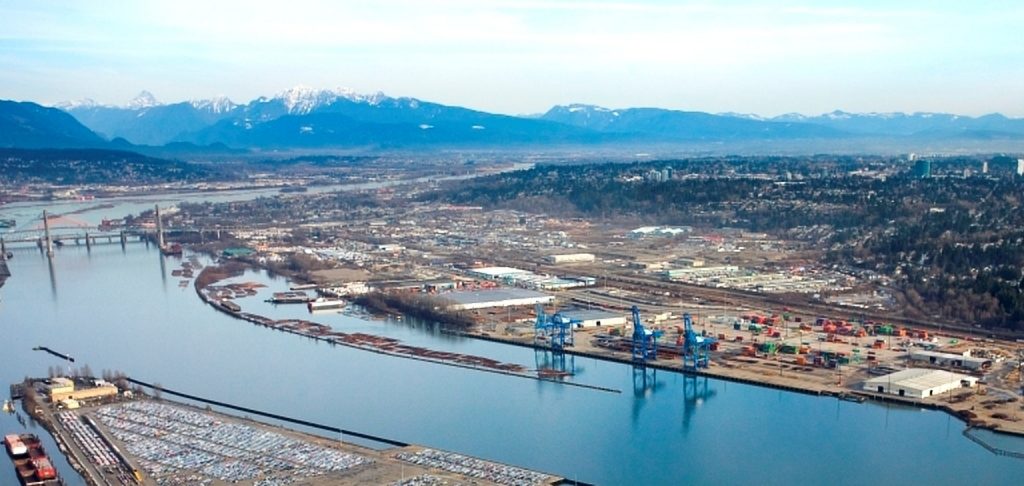Appeal of $15m BC thermal coal terminal project rejected by court

A $15 million thermal coal terminal at Fraser Surrey Docks that was approved by the Vancouver Fraser Port Authority in 2014 has been given the green light by the Federal Court of Canada.
The court last week dismissed an appeal by two community groups backed by Ecojustice of the project’s approval.
The decision comes at a time when demand for thermal coal in Asia has been moving prices back up. Thermal coal prices are currently double what they were two years ago – about $100 per tonne, compared to $50 per tonne in January 2016.
The controversial coal terminal was approved in 2014 by the port authority. The permit was amended in 2015.
The project has been controversial because it would move thermal coal mostly from American coalmines, which have no port access on the Pacific West Coast to ship coal to Asia. A number of coal terminal proposals for American ports have been rejected.
The coal that B.C. produces is metallurgical coal, which is used to make steel, whereas thermal coal is burned to produce power. While the demand for thermal coal has plummeted in the U.S. – as utilities continue to switch from cheap coal to equally cheaper, but cleaner, natural gas – demand for thermal coal in Asia continues to grow.
The project has met stiff opposition from communities that fear moving coal by rail would generate coal dust. The cities of Surrey and New Westminster were both interveners in a Federal Court of Canada appeal, arguing against the project.
The project’s approval was challenged by the Communities and Coal Society and Voters Taking Action on Climate Change, who were backed by lawyers for Ecojustice.
They argued the CEO of the Vancouver Fraser Port Authority did not have delegated authority to approve the terminal. The decision should have been made by the port authority’s board of directors, they argued, not the CEO. They also argued port authority officers and employees were biased.
There arguments were rejected by federal court Justice James O’Reilly.
“I can find no basis for overturning the Port Authority’s decisions – they were made fairly and lawfully, and untainted by a reasonable apprehension of bias,” he said in a written decision. “I must, therefore, dismiss this application for judicial review.”
Fraser Surrey Docks applied for permit in 2012. The port authority conducted a review in 2014. The project did not qualify as a “designated project” under the Canadian Environmental Assessment Agency, which meant that the port authority’s CEO had delegated authority to approve the terminal.
The court noted that, had the project been a “designated project,” the port authority would not have been able to delegate authority to the CEO. But since it wasn’t a designated project, the court found the CEO did have such delegated authority.
The court also dismissed charges that the CEO and vice president had a pecuniary interest in seeing he terminal built and were therefore biased in its favour.
“In my view, this evidence does not indicate that the senior executives at the Port Authority had a direct or tangible financial interest in approving the project,” the court found.
The litigants also argued that the port authority was biased because it had belonged to the Coal Association of Canada and even sponsored coal association conferences. But O’Reilly determined it was not unreasonable for the port authority to belong to an association that represents the industries it serves.
“I do not regard the Port Authority’s membership in the Coal Association of Canada or even its sponsorship of a conference as evidence of actual bias or even a reasonable apprehension of bias.” O’Reilly wrote. “Rather, it is inherent in the nature of the Port Authority’s statutory responsibilities for it to foster these kinds of contacts and relationships.
O’Reilly dismissed the case, with costs.
Ecojustice lawyer, Karen Campbell said in a press release that the decision was disappointing and underscored the need for revamping Canada’s environmental review process.
“The federal government has committed to restore public trust in environmental decision-making, and it now appears more important than ever that the reach of those reforms capture the activities of Canada’s ports,” she wrote.
Campbell added Ecojustice is currently reviewing the court’s decision and the possibility of appealing it.
A spokesperson for Fraser Surrey Docks could not be reached for comment.
More News
Contract worker dies at Rio Tinto mine in Guinea
Last August, a contract worker died in an incident at the same mine.
February 15, 2026 | 09:20 am
{{ commodity.name }}
{{ post.title }}
{{ post.date }}




Comments